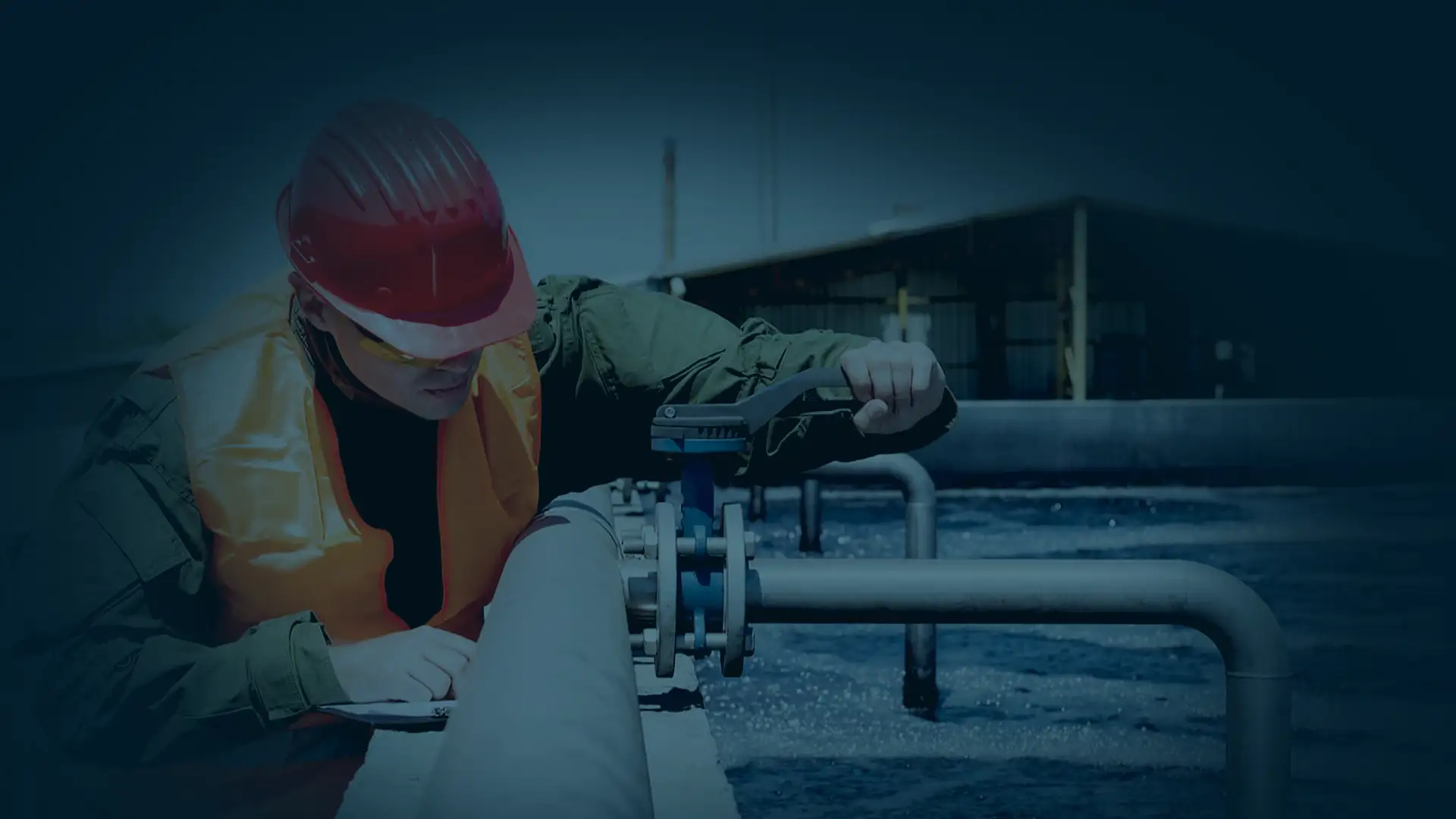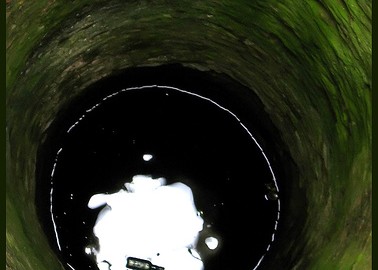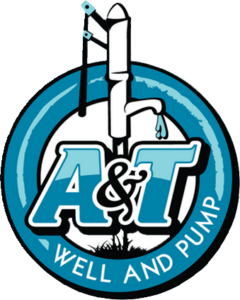
Raleigh Well Water Treatment | Sanitizing Dirty Well Water
If you’re concerned about the health and safety of your water, call us for well water testing and treatment! We serve Raleigh and the surrounding area.
"*" indicates required fields
Well water in and around Raleigh is generally safe and healthy for your family to drink, cook with, and use for household needs. However, if you have concerns about the purity of your water or fear your well may have been contaminated, it's important to contact A&T Well and Pump for water well testing and well water treatment services.
At A&T Well and Pump, we serve home and property owners in the Raleigh, North Carolina, and surrounding areas. Our well water treatment experts can quickly and effectively inspect your well for issues, test for bacteria, and disinfect your well water to remove dangerous bacteria and pollutants that could harm you and your family.
Why Is Well Water Testing Important?
While the EPA has guidelines for well water testing to protect your home’s water, it's important to know that those guidelines don't apply to private wells. This means that as a homeowner, you're responsible for ensuring your well water is safe. However, unless you know what to look for you won’t know how to diagnose and treat your well water properly. That’s where A&T Well and Pump’s well water treatment services come in. Our well water testing experts provide comprehensive testing for your well water.
When we provide our well water treatment and testing services, we look for:
- Coliform bacteria: These are microbes that are found in human and animal waste, within the soil, and in surface water (runoff from rain, and water in puddles, ponds, and lakes). High quantities in your water can be a sign of harmful bacteria, including E. Coli, parasites, and other things that can make you very sick.
- pH balance: Making sure your water is neither too acidic nor basic is important in how your water looks and tastes. It is also important to make sure it's not corroding your pipes and leaching lead into your water.
- Nitrates: Like coliform, this can come from waste, septic leaks, flooded sewers, or even plant decay.
- Volatile organic compounds (VOCs): Industrial and petroleum-based chemicals can enter the groundwater system and are highly toxic. We test for benzene, carbon tetrachloride, and other pollutants as part of our well water treatment services.
Well Water Treatment Services in Raleigh
If our well water treatment specialists discover any presence of harmful bacteria or pollutants in your well water, we will work quickly to restore safe, healthy water to your home. If your well needs to be cleaned and your water treated, we offer a highly comprehensive well water treatment service that includes:
- Video well inspections to look for debris and check the electrical system that runs the pump
- Flushing the well and pipes of any contaminated water
- Disinfecting the well water with a carefully measured chlorine solution
- Retesting a few weeks after well water treatment service to ensure no contaminants have re-entered the well and water supply
When Should I Have My Well Treated?

You should have your well water tested annually to ensure it maintains its safety. However, there are other times when you should call our well treatment company in Raleigh for well water treatment.
This includes:
- Experiencing flooding or your water appears brown-ish or yellow after heavy rains
- Testing shows coliform bacteria or other contaminants
- After any plumbing project or well repairs
- Any changes in water, color, or taste
- Annual service for maintenance and startup for seasonal wells used in vacation homes
Contact Our Well Specialists Today For A Quote!
Why You Should Never Treat Your Own Well
While there are instructions online for "shocking" a well, our well water treatment experts from A&T Well and Pump in Raleigh don't recommend it. Sanitizing a water well isn’t exactly a simple process, and to be thorough, the well itself needs to be cleaned. Just like with any construction project, certain dangers are inherently present when digging or repairing a water well. However, most people don’t realize that cleaning a contaminated well can be hazardous as well.
Some of the hazards that come with cleaning and disinfecting a well include:
- Electrical Shock – Wet connections or frayed wiring can cause shock if the electrical system isn’t turned off. A well repair technician in Raleigh can properly diagnose and repair faulty wiring.
- Sharp/jagged debris – If a well has been contaminated by flooding or disasters, glass, wood, and metal could be present. Debris should be removed without physically entering the well.
- Dangerous Vapors and Gases – Certain gases can accumulate in closed water wells and chlorine solutions used to treat contaminated water wells can cause skin and eye irritation and emit harmful vapors. Working in open-air areas is ideal to avoid vapor inhalation.
It's vital to leave your well sanitation efforts in the hands of the experienced and knowledgeable well water treatment professionals from A&T Well and Pump.
What Are the Benefits of Well Water Treatment Services and Filtration Services?
Water filtration offers several benefits that contribute to improved water quality, health, and overall well-being. Here are some of the key advantages of using water filtration for well water treatment services in Raleigh.
Improved Taste and Odor
Water filtration systems can remove unpleasant tastes and odors from tap water, making it more palatable and enjoyable to drink and use for cooking.
Removal of Contaminants
Filtration systems for well water treatment can effectively remove various contaminants from water, including:
- Sediment and Particles: Filters can trap particles like sand, silt, and rust, preventing them from entering your water supply.
- Chlorine and Chloramines: Many municipal water treatment facilities use chlorine or chloramines for disinfection. Filtration can remove or reduce the taste and smell of these chemicals.
- Heavy Metals: Filtration can target heavy metals like lead, mercury, and copper, which may leach into the water from pipes or other sources.
- Microorganisms: Some filtration systems, such as those with UV or ceramic filters, can remove or deactivate harmful bacteria, viruses, and protozoa.
- Organic Contaminants: Water filtration can remove organic pollutants like pesticides, herbicides, and industrial chemicals.
- Hardness Minerals: Water softeners, a type of water filtration system, can reduce the concentration of calcium and magnesium ions responsible for water hardness, preventing scale buildup in pipes and appliances.
Health Benefits
Well water treatment filtration systems can enhance the safety of your drinking water by reducing and preventing the risk of contamination from the presence of harmful microorganisms. This can reduce the risk of waterborne illnesses and protect your health.
Regular well water treatment can also provide healthier and softer skin. This is because hard water can be harsh on the skin. But, removing minerals from the water and softening the water, can make the water gentler on the skin.
Cleaner Clothes
Hard water can tend to dry out fabrics, making them rougher with more washes. It can also leave mineral buildup on clothes that can’t be removed. Well water treatment services, such as adding a water softener, can eliminate these problems.
Protection of Plumbing and Appliances
Removing sediment, minerals, and other impurities can extend the life of your plumbing fixtures and appliances such as water heaters, dishwashers, and washing machines, by preventing scale buildup and corrosion.
Environmental Considerations
Using water filtration can reduce your reliance on bottled water, which contributes to plastic waste and environmental pollution. Filtration at home helps minimize the environmental impact of bottled water consumption.
Convenience
Access to clean, filtered water at home is convenient and cost-effective in the long run, as you don't need to purchase bottled water or rely solely on untreated tap water.
Customization
There are various types of well water treatment filtration systems available, allowing you to choose the one that best suits your specific water quality concerns and needs. You can select from options like pitcher filters, under-sink filters, whole-house systems, and more.
Peace of Mind
Knowing that your water is being filtered and purified can provide peace of mind, especially in areas with known water quality issues or concerns about contaminants.
Save Money
Keeping on top of your well water treatment can help to save money down the road. By testing your water regularly, you have a better chance of detecting a problem when it starts, rather than down the road when it can become more dangerous and costly.
Having a clean well water supply can also help to save money by avoiding the cost of bottled water. By having a filtered water supply, you not only save money on bottled water but also help the environment by not producing as much plastic waste.
FAQ about Well Water Treatment Services
What does maintaining a well water treatment system entail?
To maintain a well water treatment system, you’ll want to monitor the system’s performance, have the system cleaned, and adhere to a schedule of regular filter changes.
How can I tell if my well water is making me sick?
The most common symptoms of bacteria in well water include nausea, fatigue, low energy, flu-like symptoms, and cramps.
Will well water treatment services improve the taste and odor of my water?
Yes, well water treatment services will improve the taste and odor of your water by removing contaminants such as chlorine, sediment, and other debris. Filtration systems are helpful in this area because they can remove these materials, resulting in better-tasting and clearer water.
Should I test my water quality before and after well water treatment services?
It is recommended to have your water quality tested before and after any well water treatment services. This will help to identify any specific contaminants that need to be addressed.
